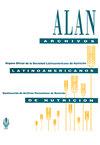临床模拟与戏剧化:营养学本科教学策略
IF 0.5
4区 医学
Q4 NUTRITION & DIETETICS
引用次数: 0
摘要
目前,健康科学的教育需要与真实的患者互动,由于需要确保他们的健康安全,这变得更加复杂。因此,目前正在实施新的教学方法,这有助于改善和保护安全护理。目的:本研究采用非实验、描述性设计的定量方法进行。材料与方法:样本是非概率的,共87名大学生。采用问卷调查,18个问题分为3个维度:维度1,模拟结构,6个问题反映与实施相关的方面;维度2:学习,共7个问题,涉及有效沟通、信任、学习和尊重多样性;第三维度,学习反馈,有五个问题,包括老师和模拟患者的反馈,以及他们自己对再次参与类似体验的看法。采用李克特五点量表。结果:在模拟结构、学习和学习反馈三个维度上,学生表现出较高的积极感知水平。结论:模拟策略是一种健康相关职业的教育工具,可以提高学生的临床能力,并在学习过程中提高相关的理论和实践技能和能力,促进前学科知识的整合。本文章由计算机程序翻译,如有差异,请以英文原文为准。
Clinical simulation with dramatization, a teaching-learning strategy for undergraduate students of nutrition and dietetics
At present, education in Health Sciences requires interaction with real patients, which is made more complex due to the need to ensure their health safety. For this reason, new teaching methodologies are now being implemented, which help to improve and protect safe care. Objective: This study was carried out using a quantitative approach with a non-experimental, descriptive design. Materials and Methods: The sample was non-probabilistic and consisted of 87 undergraduate students. A questionnaire was used, with 18 statements divided into 3 dimensions: dimension 1, simulation structure, with six questions reflecting aspects related to its implementation; dimension 2, learning, with seven questions related to aspects of effective communication, trust, learning and respect for diversity; dimension 3, feedback for learning, with five questions, including feedback by the teacher and the simulated patient, as well as their own views with regard to participating in another similar experience again. A five-point Likert scale was used. Results: The three dimensions studied, simulation structure, learning and feedback for learning, report a high level of positive perceptions. Conclusion: The simulation strategy is an educational tool in health-related careers that enhances the clinical competencies of the students as well as the relevant theoretical and practical skills and abilities in their learning process, promoting integration of the knowledge acquired in previous subjects.
求助全文
通过发布文献求助,成功后即可免费获取论文全文。
去求助
来源期刊
CiteScore
0.50
自引率
0.00%
发文量
31
期刊介绍:
Archivos Latinoamericanos de Nutrición (ALAN) is the official publication of the Sociedad Latinoamericana de Nutición (SLAN), for the dissemination of knowledge in the fields of food and nutrition, principally throughout the American Hemisphere. Articles in Spanish, English, Portuguese and French are accepted, both from the Society members and from nonmembers, in the following categories: 1. General articles (critical scientific reviews); 2. Research articles (originals); 3. Papers in applied nutrition (analytical results from intervention programs and discussion of reconmendations of practical application), and 4. Letters to Editor (short comments of general interest or about scientific facts and results previously published in Archives).

 求助内容:
求助内容: 应助结果提醒方式:
应助结果提醒方式:


